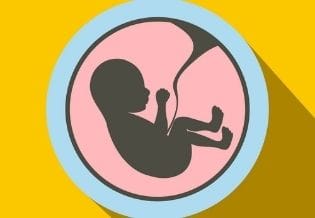Aims & Scope
Journal of Fetal Surgery (JFS) publishes research on surgical interventions, diagnostic technologies, and therapeutic innovations for prenatal and early neonatal conditions requiring surgical management.
Core Research Domains
Fetal Surgical Interventions Tier 1
- Open fetal surgery techniques and outcomes
- Fetoscopic procedures (laser therapy, shunt placement, cord occlusion)
- EXIT (Ex utero intrapartum treatment) procedures
- Minimally invasive fetal surgery innovations
- Robotic-assisted fetal surgery systems
- Myelomeningocele repair (open and fetoscopic)
"Novel fetoscopic technique for twin-twin transfusion syndrome with 12-month maternal-fetal outcomes"
Prenatal Diagnostics & Imaging Tier 1
- Advanced fetal ultrasonography techniques
- Fetal MRI for surgical planning
- 3D/4D imaging for anomaly assessment
- AI-based diagnostic algorithms for fetal anomalies
- Fetal echocardiography for cardiac defects
- Image-guided intervention technologies
"Machine learning model for predicting surgical candidacy in congenital diaphragmatic hernia using MRI volumetrics"
Neonatal Surgical Management Tier 1
- Surgical correction of congenital anomalies (gastrointestinal, thoracic, urologic)
- Neonatal emergency surgery techniques
- Lower urinary tract obstruction management
- Congenital heart defect surgical approaches
- Minimally invasive neonatal surgery
- Wound healing and tissue repair in neonates
"Outcomes of thoracoscopic repair for esophageal atresia in neonates under 2kg birth weight"
Perioperative Science & Technology Tier 1
- Fetal anesthesia protocols and safety
- Neonatal anesthesia for complex procedures
- Fetal monitoring during intrauterine surgery
- Maternal-fetal physiological responses to surgery
- Pain management in fetal and neonatal surgery
- Surgical device innovation and biocompatibility
"Comparative analysis of anesthetic agents on fetal cardiac function during open fetal surgery"
Secondary Focus Areas
Cross-Disciplinary & Methodological Innovations
Emerging Research Frontiers
Artificial Intelligence & Digital Health
- AI for prenatal diagnosis and risk stratification
- Machine learning for surgical outcome prediction
- Computer-assisted surgical planning systems
- Automated fetal monitoring algorithms
⚠ Note: Submissions in this area undergo additional editorial review for clinical validation and methodological rigor.
Regenerative Medicine & Tissue Engineering
- Stem cell therapies for fetal anomalies
- Bioengineered scaffolds for tissue repair
- Gene therapy approaches for congenital disorders
- In utero cell transplantation techniques
⚠ Note: Must include preclinical validation data and clear translational pathway.
Advanced Surgical Technologies
- Augmented reality for surgical guidance
- Haptic feedback systems for fetal surgery
- Micro-robotics for intrauterine procedures
- Wireless fetal monitoring devices
⚠ Note: Requires demonstration of feasibility and safety in relevant models.
Article Types & Editorial Priorities
Original Research Articles
Novel surgical techniques, comparative effectiveness studies, prospective cohort analyses, randomized controlled trials. Target decision: 21 days.
Systematic Reviews & Meta-Analyses
PRISMA-compliant reviews of surgical outcomes, diagnostic accuracy studies, intervention effectiveness. Target decision: 21 days.
Review Articles & Literature Reviews
Comprehensive overviews of current knowledge and emerging trends in fetal surgery. Target decision: 21 days.
Mini-Reviews
Concise summaries of focused topics (max 3,000 words). Target decision: 21 days.
Methods & Technology Reports
Novel surgical instruments, imaging protocols, AI algorithms, surgical simulation models. Target decision: 21 days.
Short Communications & Rapid Communications
Preliminary findings, technical notes, surgical innovations (max 2,500 words). Target decision: 21 days.
Data Notes
Registry data, surgical outcome databases, imaging datasets with reuse potential. Target decision: 21 days.
Case Reports & Case Series
Unusual presentations, rare conditions, or novel interventions (max 1,500 words). Target decision: 21 days.
Clinical Trials
Phase I-IV trials of fetal and neonatal surgical interventions. Target decision: 21 days.
Editorials
By invitation only. Contextual commentary on recently published articles. Target decision: 21 days.
Letters to the Editor
Comments on published articles or brief scientific observations. Target decision: 21 days.
Commentaries & Perspectives
Expert opinions on emerging techniques, ethical debates, or field directions. Target decision: 21 days.
Opinion Pieces
Authoritative viewpoints on controversial topics in fetal surgery. Target decision: 21 days.
Conference Proceedings & Meeting Reports
Summaries of key presentations and discussions from major conferences. Target decision: 21 days.
Book Reviews
Critical assessments of recently published books relevant to fetal surgery. Target decision: 21 days.
Theses & Dissertations
Summarized versions of doctoral research (with advisor approval). Target decision: 21 days.
Editorial Standards & Requirements
Reporting Guidelines (Mandatory)
- CONSORT for randomized trials
- STROBE for observational studies
- PRISMA for systematic reviews
- ARRIVE for animal research
- STARD for diagnostic accuracy
- CARE for case reports (if accepted)
Data & Reproducibility
- Raw data deposition in public repositories
- Statistical analysis code availability
- Imaging data sharing (anonymized)
- Surgical video protocols (when applicable)
- Device specifications and CAD files
Ethics & Compliance
- IRB/Ethics committee approval required
- Informed consent documentation
- Animal welfare compliance (IACUC)
- Conflict of interest disclosure
- Clinical trial registration (prospective studies)
Preprint & Prior Publication
- Preprints on recognized servers accepted
- Conference abstracts do not preclude submission
- No duplicate publication
- Translations require original publisher permission
- Preprint DOI must be disclosed at submission
Editorial Performance Metrics
(Priority 1 Articles)
(2024)
to Publication
(APC-Based)
Ready to Submit Your Research?
If your work advances surgical techniques, diagnostic technologies, or therapeutic innovations for fetal and neonatal populations, we want to hear from you.
Submit Your Manuscript

